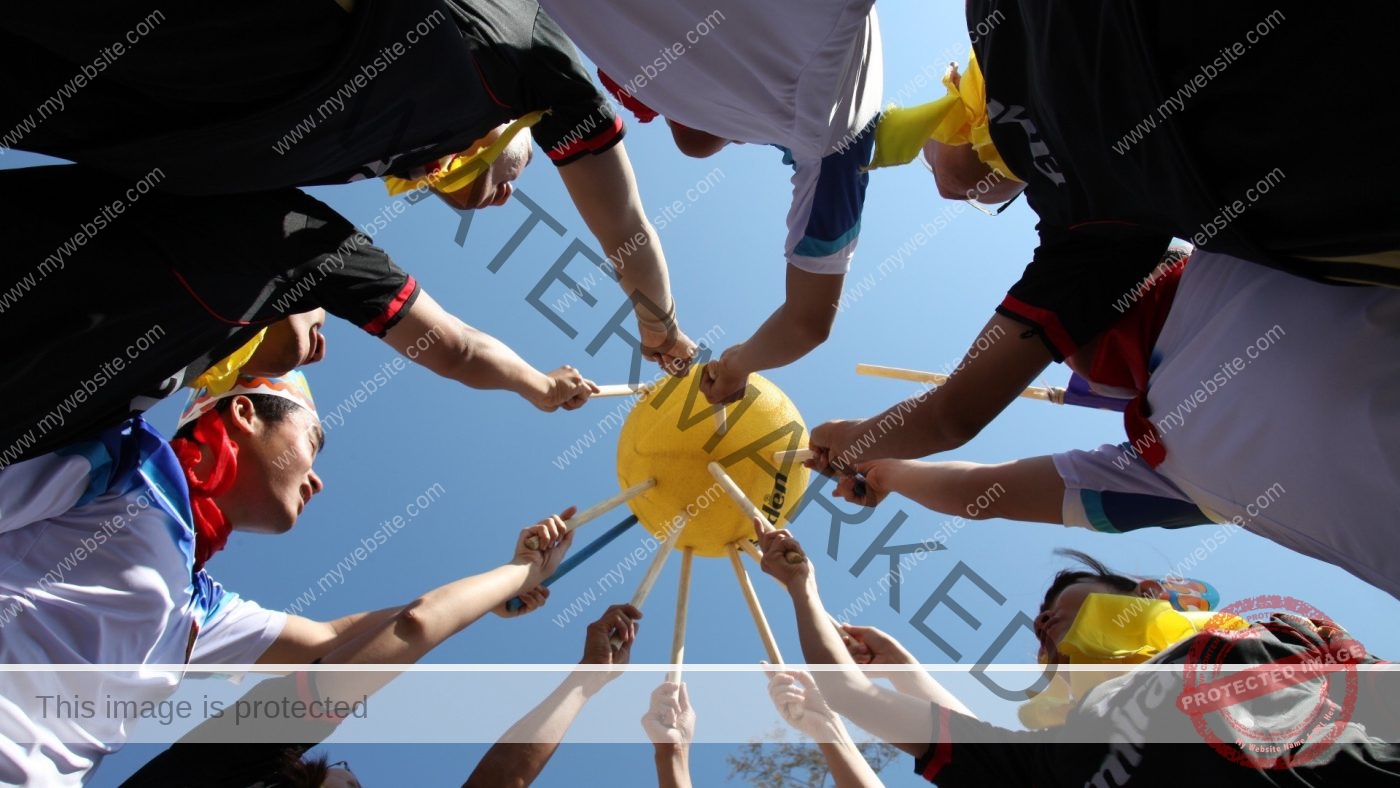Team building & 5 stages of team development
“TEAM” is like the abbreviation of “Together Everyone Achieve More”, meaning everyone contributes together to achieve more benefits. It is a group of people who work together to perform interdependent tasks toward the accomplishment of a common task or specific goal.
According to Bruce Tuckman (1938-2016), an American psychologist, a team always goes through five stages of forming; storming; norming; performing; ending on the way to high performance.
The team’s development process is shown in the following diagram:
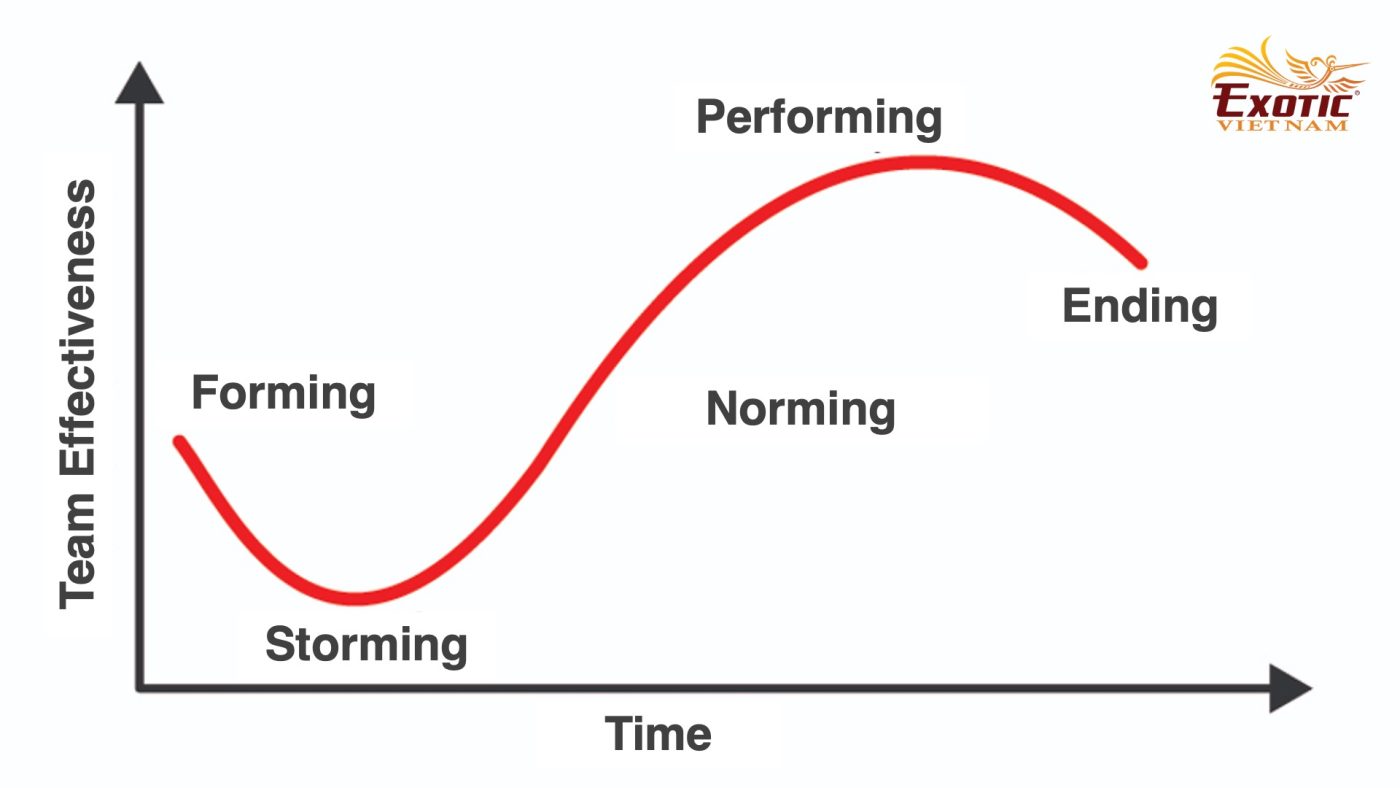
Forming – Coming together
When a new team is formed, the members are new and need time to get to know each other so they can work together and also need to learn the common purpose of the team. They may be nervous, curious, reserved or excited when they start working together and position themselves within the team. Everyone needs a captain for guidance.
Storming – Adjusting differences
Conflict or friction arose at work because members revealed their true personalities – and their preferred ways of working. They may also be dissatisfied with each other’s work and have difficulty reaching consensus-based decisions. From there, they asked questions to re-establish the team’s rules that had been established from the beginning. People can challenge the captain’s authority or management style. Even though we understand each other better, conflicts can lead to direct confrontations or simmering tensions; members are no longer focused enough on working towards common goals. Teams can get bogged down in this stage.
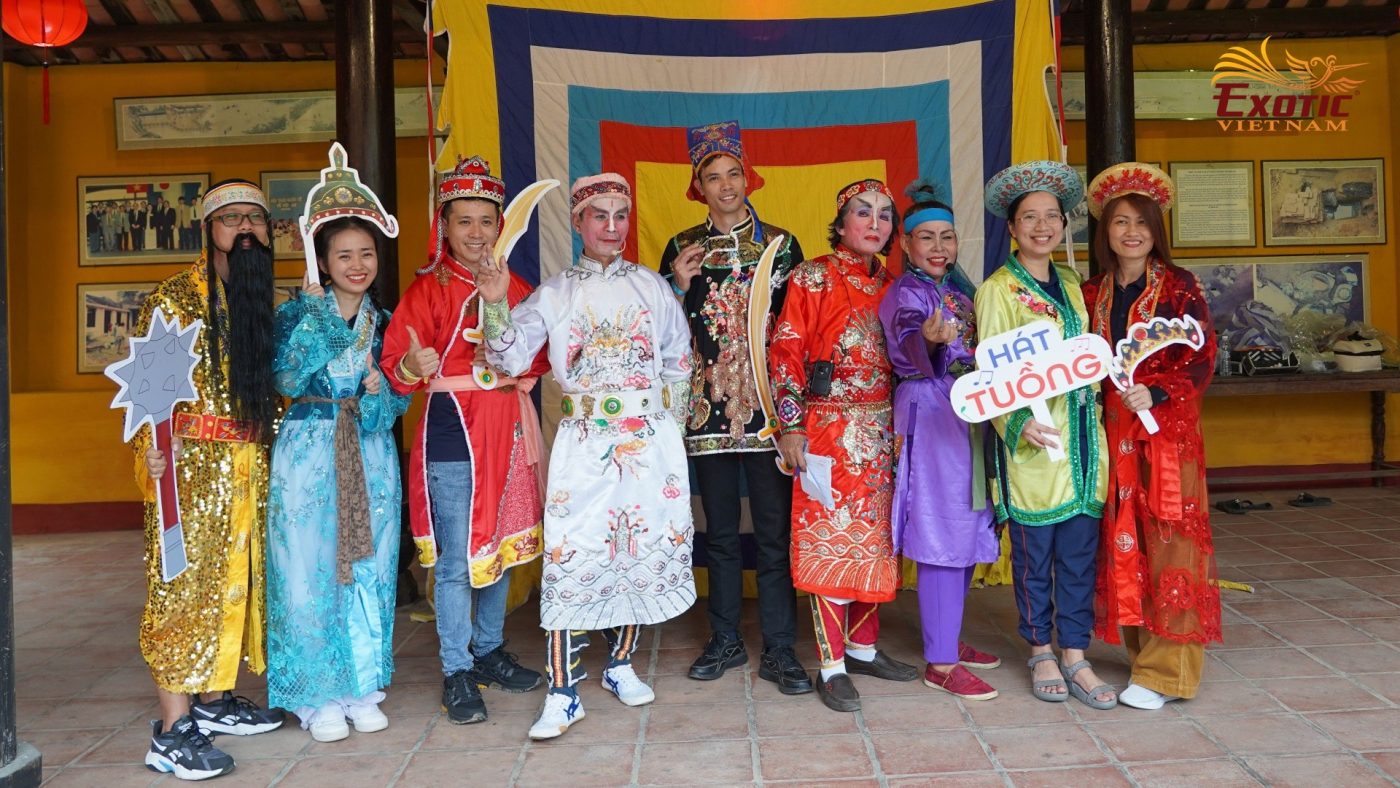
Norming – Establishing common ground
Gradually, people began to resolve their differences, appreciating each other’s strengths. Members begin to communicate with each other more smoothly, giving constructive feedback and asking for help when needed. They will share a stronger commitment to common goals and they will achieve good performance towards them. Many new rules were formed. The captain is respected as a leader.
Performing – Achieving highest productivity
Members feel very comfortable sharing ideas within the team. There are no conflicts between them, making all activities run smoothly. The rules are followed without any difficulty. Differences between members are appreciated and used to enhance team performance. Their enthusiasm and commitment provide the ability to achieve goals effectivel. Newly joined members will also quickly and smoothly integrate.
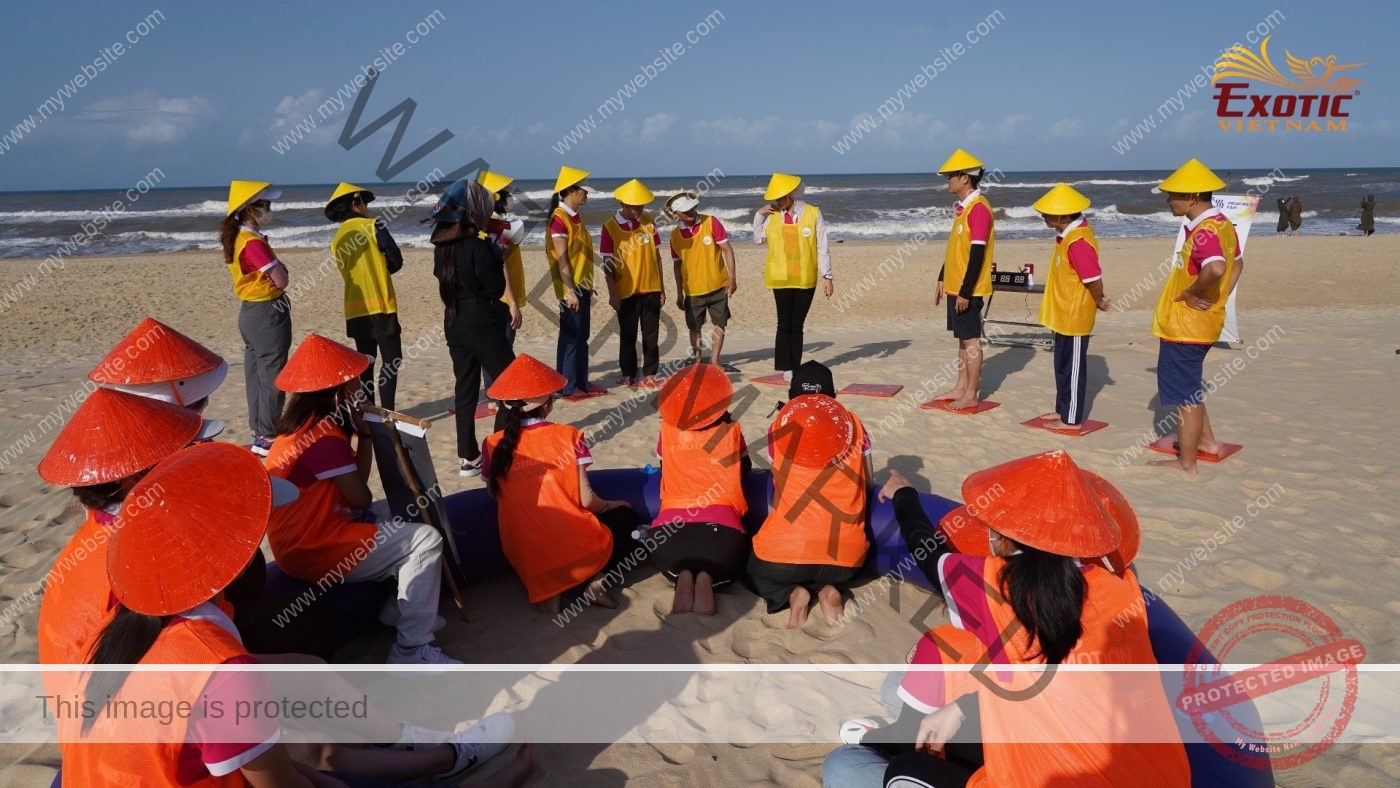
Ending – Recognizing achievements and moving forward
Many teams reach this stage naturally when completing tasks or needing to restructure. Team members regret having to part with established principles and close working relationships with colleagues. They may face difficulties when working with new teams because of the deep feelings and habits established with the previous team. At the same time, team members can feel satisfied with the team’s achievements as a foundation to move on to higher steps or a useful lesson for new teams.
Your team will go through these 5 stages of development. However, Tuckman’s model is not a one-way street, teams can lose rankings between stages. You need to determine what stage of development your team is in. Providing the correct direction will help members easily overcome the barriers of each stage.
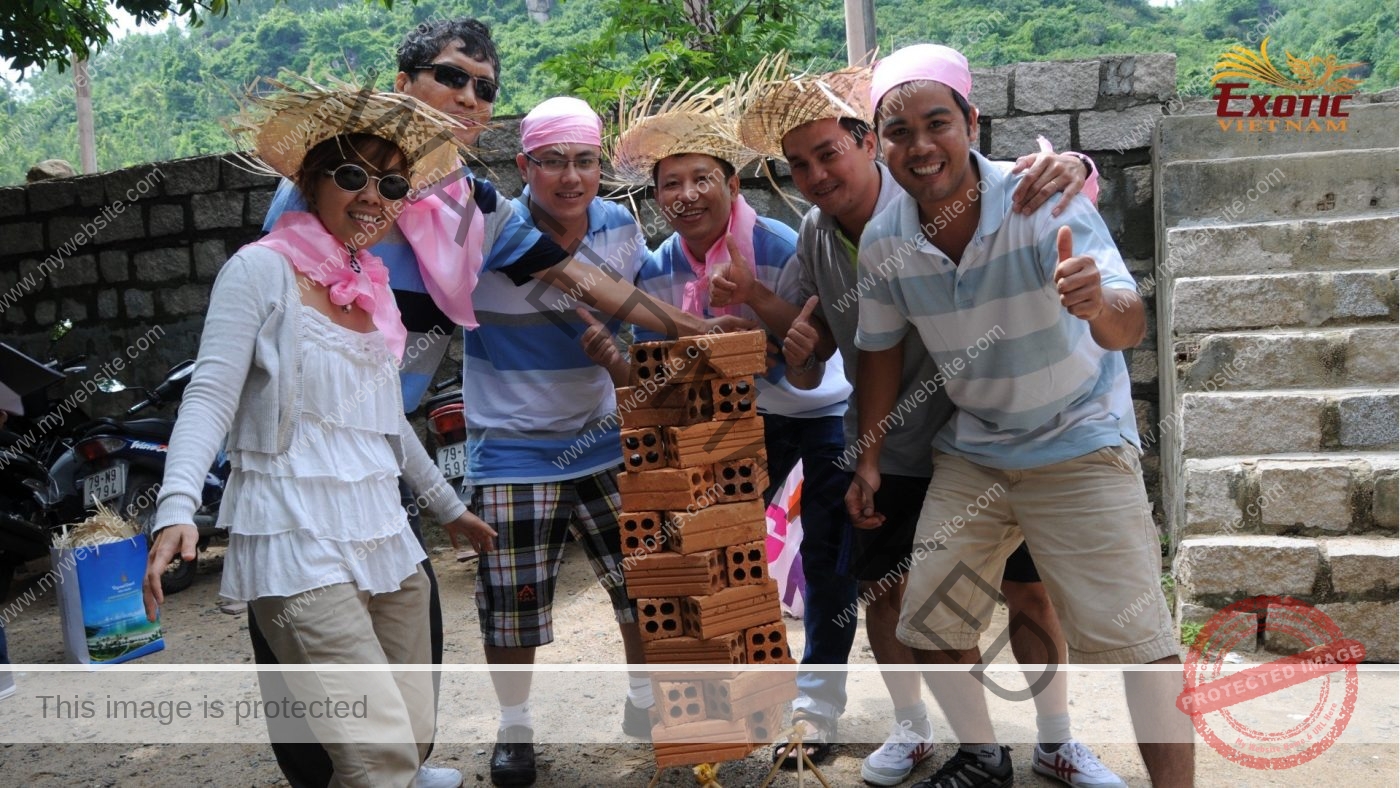
Exotic Vietnam is a company that organizes professional team building activities, accompanying businesses to “monitor” the team’s development. Team building is a continuous process, linked to your company culture, to train and improve the skills that people need so they can work in harmony to promote effective team development. The program can be held indoors or outdoors in many different open spaces from beaches, villages, to grass fields, etc. at familiar locations such as team building HCM City, team building Ho Tram, team building Phan Thiet, team building Da Lat, team building Da Nang, team building Hoi An, team building Ninh Binh, team building Ha Long, team building Ha Noi, etc.

